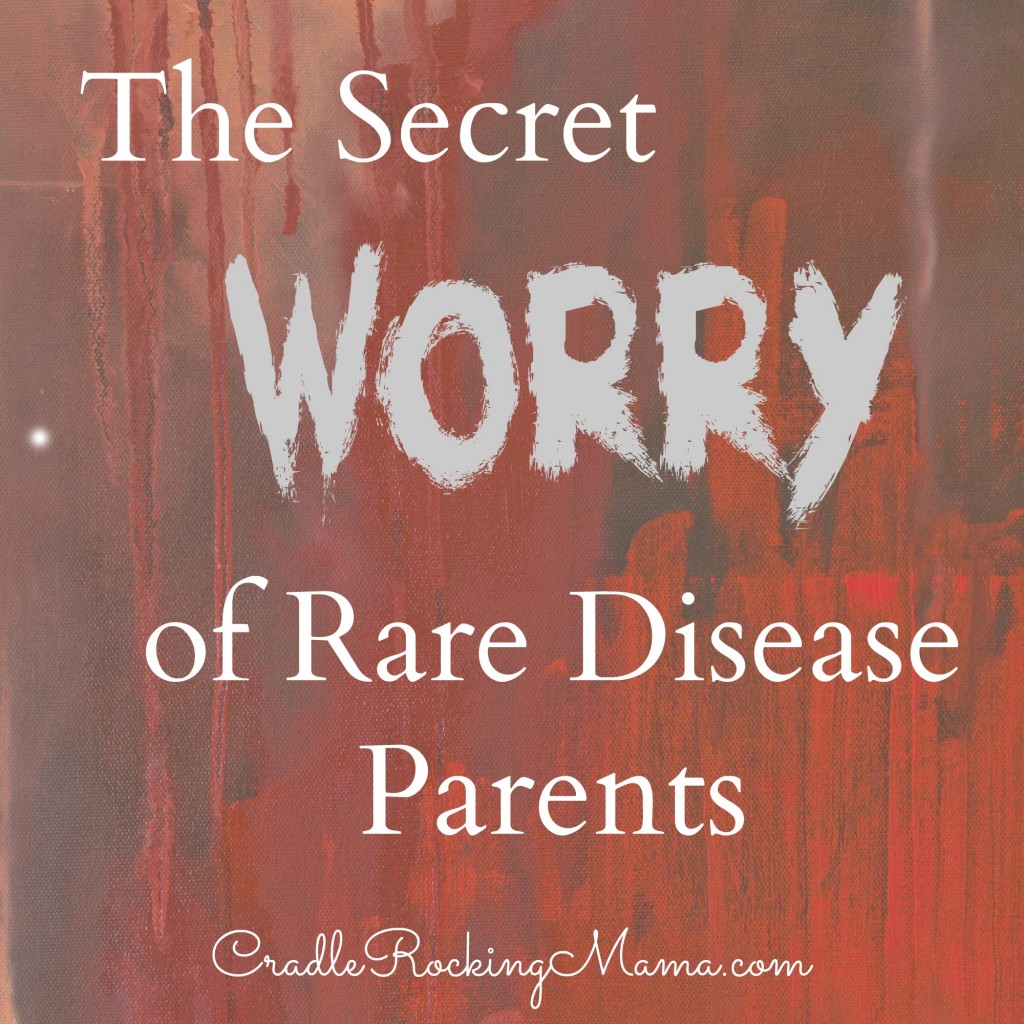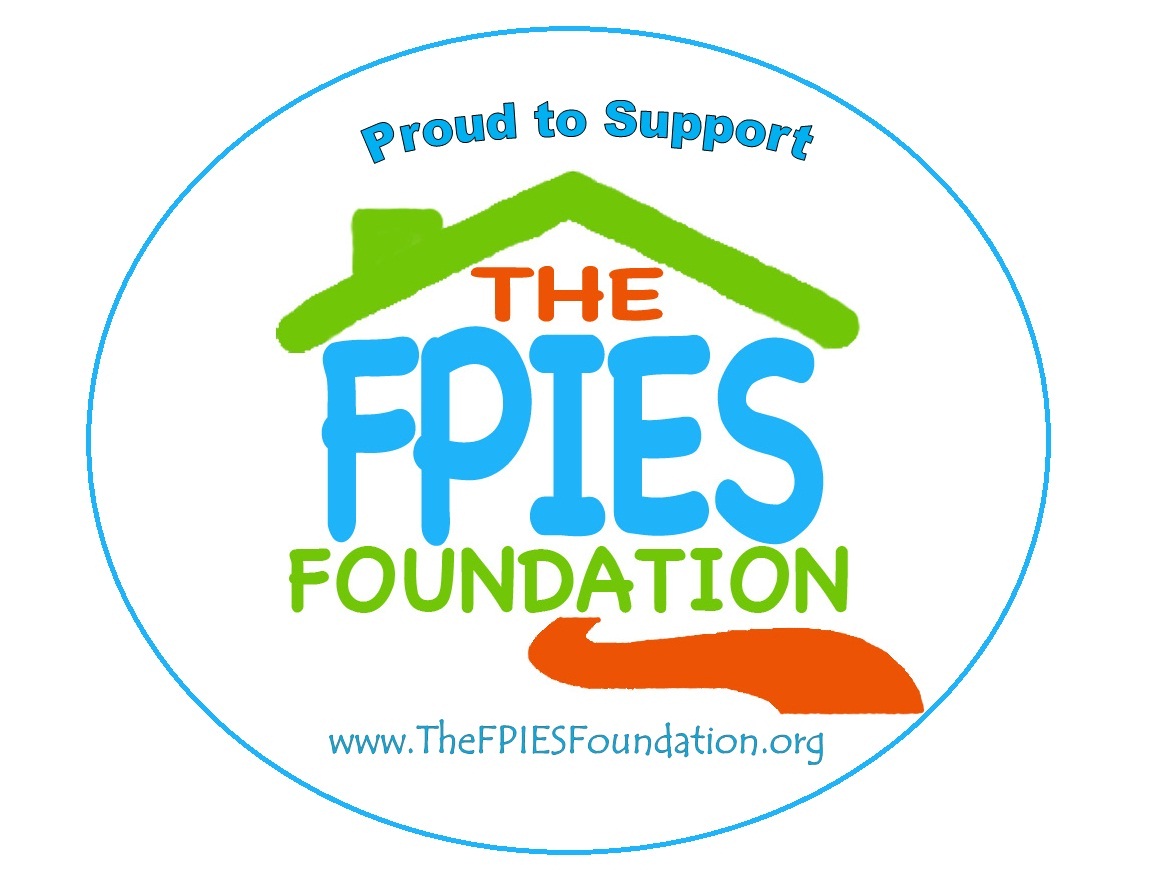This is something that has been on my mind for a long time, but I’ve held off writing about it because…well, it’s hard to write about.
Parents, by design, have to live with a certain degree of worry. We worry about little things, like whether our child is developing on track or socializing properly, and we worry about big things, like injury or harm to our babies.
Some would argue that today’s society is living with too much worry and fear; that childhood is being stripped of its magic and joy due to helicopter policies and laws designed to remove common sense from every interaction we or our children will ever have.
I tend to agree with that point of view, for the most part; I approach my childrens’ encounters with the world with much more of a “well, now you’ve learned, haven’t you?” approach, than a “don’t do that! You could stub your toe!” approach.
But those are generally the extent of the worries parents of perfectly healthy children deal with.
There is a worry that only parents of rare disease children must endure. It is a worry that can easily flip over to full-fledged fear; rattling us to our core and shaking us to our foundations.
It’s also a worry we cannot strictly avoid.
This worry?
Doctors.
Before anyone gets their hackles raised, here is what I am NOT saying. I’m not saying doctors are evil and awful and not to be trusted. I’m not saying doctors are monstrous and scary. Not at all.
But there is a justifiable concern for rare disease parents when dealing with some doctors.
Just as with any profession, there are good and bad representatives of all aspects of the medical field…doctors, nurses, techs, even billing.
But our children have rare diseases. “Rare diseases”, by definition, are unique, unusual, and often misunderstood.
That’s where the first part of the worry comes from: the worry of not being heard.
With FPIES, a common theme is for doctors to “blow off” a child’s reaction symptoms as a stomach bug, a virus, or some other typical childhood ailment. This is why many FPIES children are not properly diagnosed until two and three years of age, despite having shown reaction signs since infancy.
Doctors don’t believe the parents, and ignore them.
They belittle the parents knowledge of their child and convince them they are over-reacting, over-protective, or – in extreme cases – accuse them of Munchausen by Proxy.
That’s scary.
It is scary to know something is wrong with your child, only to be rebuffed by every “expert” you seek guidance from.
It can make you feel alone and confused; you may even start questioning your confidence in the truth.
After all, imagine if you believe the sky is blue, but every single person you say that to insists that no, the sky is actually red.
After a while, wouldn’t you start to wonder if – perhaps – you were color blind?
Meanwhile, your child is still sick, still failing to thrive, still scaring you to death with the severity of their reactions, and no one will help you.
It’s a terrible thing to be constantly undermined at every pass, despite mounting evidence of your child’s illness.
The worst part of the worry of rare disease parents, though, is that you will encounter the most dangerous kind of person in your medical travels: the doctor who will begin measures to have your children taken away from you.
Think this is a bit paranoid?
Sadly, no, it is not.
Without getting in to specifics, I can think of three FPIES families that I know of who are currently at some point in a legal battle over their children. I know of one family who has already lost – and regained – custody of their child.
All because a doctor somewhere along the way reported them to CPS.
In some of these cases, the extreme measures the parents were taking to keep their child healthy and thriving were not working and the doctors were concerned enough to involve authorities. From an FPIES families perspective, that decision is ridiculous and cruelly unnecessary, but at a glance it at least shows the doctor is concerned for the child’s welfare.
But in some of these cases, the parents simply disagreed with the doctors recommendations. Though the child was thriving perfectly well under their parents watchful care, the doctors took issue with the fact that the parents would not follow their instructions and reported them to the authorities.
This doesn’t just happen to FPIES families; one only needs to read of Justina Pelletier to realize this could happen to any family with a rare disease child who dares to seek a second opinion or disagree with a doctor, if they are dealing with the sort of doctor who puts personal ego above patient care.
It’s a terrible thing to worry about.
As a rare disease parent, if you encounter some unusual symptom or reaction in your child, this worry can cause you to speculate whether you should even mention it to your childs doctor.
You are well aware that if you bring enough “weirdness” in to the doctors office, you might become labeled a “crazy Mom”, and face some unpleasantness in response. On one end is simply getting the “brush off” and start receiving less-than-attentive care. In the middle is enduring an investigation by CPS.
And at the extreme end is actually losing parental rights to your precious child.
There is no happy ending to this post. No quick reference “this is what you do if…” conclusion.
My only true aims in writing this were to first give a voice to rare disease parents out there by saying “you aren’t alone in this worry”.
Then I hope sharing that this is a valid concern will enable family and friends of rare disease families to better understand some of the stresses they are under.
And finally, I hope beyond hope that good doctors will read this and recognize the difficult situation rare diseases put parents in, and open their minds and hearts to the parents of their patients.
If enough good doctors are willing to walk the uncertain, scary walk of rare diseases WITH the parents, instead of AGAINST the parents, the CHILDREN will benefit more than anyone else.
And that is all that everyone – doctors and parents – in the rare disease world should really care about.
The Children.
To be clear, we are not experiencing anything remotely like this, nor have we ever. This topic has simply been on my mind since the Justina Pelletier case has garnered so much attention in the media, and since hearing of my fellow FPIES mama’s experiences.
I would also like to give my sincerest gratitude and love to the excellent doctors who make life more sane and easy for FPIES parents. There are many of them out there, and they are like a breath of fresh air to an FPIES parent. Thank you, doctors!












Parenting can be a scary world. I know a non-vaccinating family with a Down syndrome child. Relying on whole, nutritious foods and the hard work of research instead of going to the the doctor for every event, big or little, has them worried some days. But, their child is thriving. My husband and I worry about our medical decisions all the time. We are already considered odd with six kids in the age of birth control. I feel like I always have to justify our decisions that fall outside the standard practice of medicine and nutrition.
I cannot even imagine your shoes. The rarity of your situation makes it so much worse. Just keep praying and keep doing what you know to be best. It’s all we have.
Oh, wow, Amy! 6 kids is awesome! What a blessing! You’re not odd – you’re lucky. 😉
Yes, lots of time is spent researching, feeding my kids as well as I can, and praying. It’s amazing how often that results in a thriving child, isn’t it?
carrie do you have private email to communicate off a public forum?
Yes, I do. mama at cradlerockingmama (dot) com. I’ll send you an email.
Pingback: 2014 Wrap-Up! - Cradle Rocking Mama